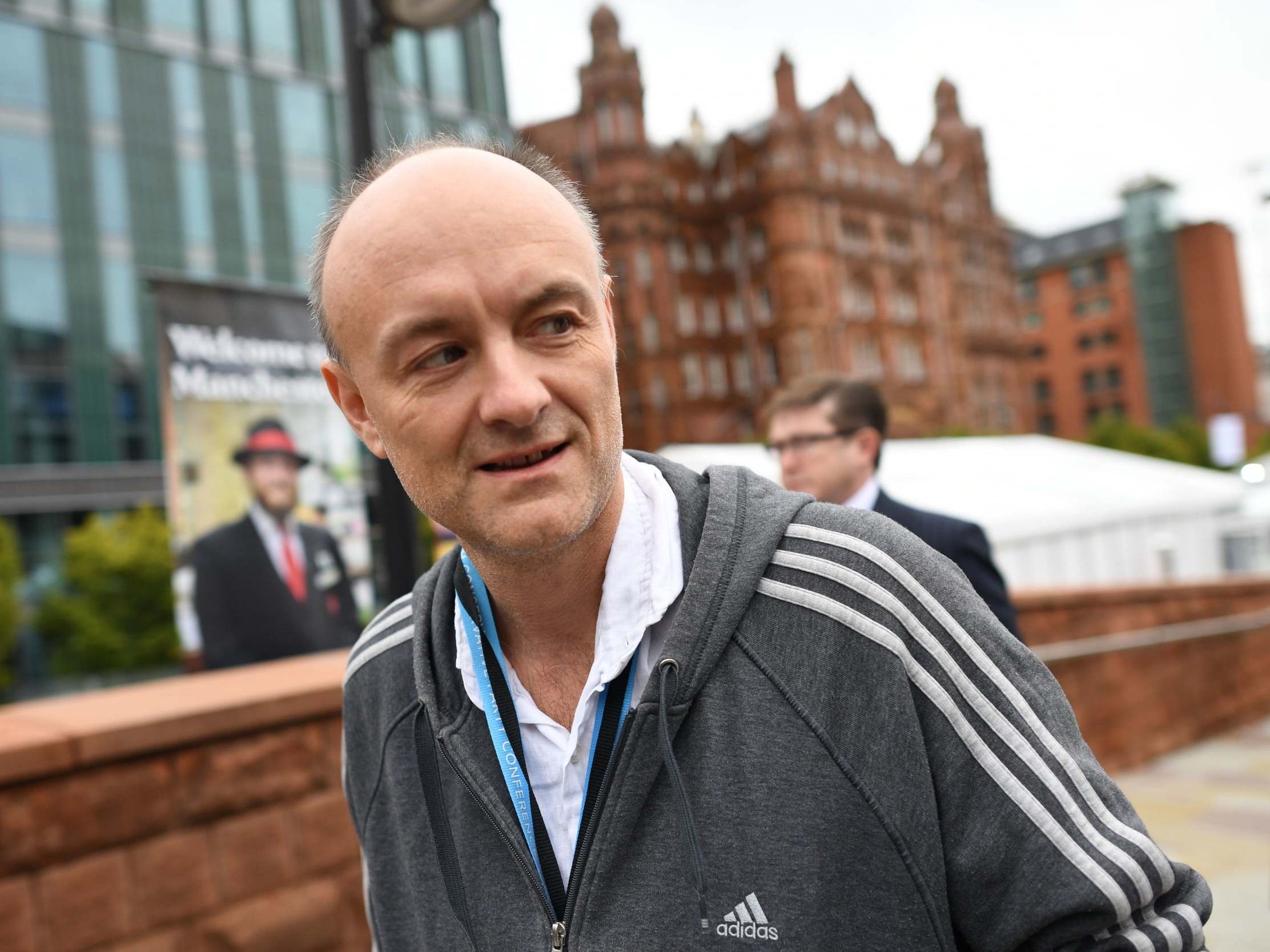How Dominic Cummings is taking advantage of the powers of incumbency
There have been some glaring errors but the prime minister’s key aide knows how to use the machinery of government, writes Sean O'Grady


Classic Dom” is the sarcastic catchphrase that mocks the supposed political gifts of the prime minister’s Svengali and chief adviser, Dominic Cummings. Thus, most recently, when Mr Cummings briefed that the Brexit talks would collapse within days, there was a sudden breakthrough at the summit with Leo Varadkar.
Other examples would include the botched first prorogation of parliament, dismissed as unlawful and void by the Supreme Court, and timed handily, as it happens, to distract attention from a disastrous Labour conference; and expelling 21 MPs from the parliamentary Conservative Party for voting for the Benn Act, thus eliminating the Tories’ majority in the Commons and creating a band of enemies with nothing to lose.
Still, in the bigger scheme of things, the Cummings strategy, Machiavellian or not, has succeeded in pitching the prime minister as the champion of the people against some elite establishment, including parliament itself, the courts, parts of the media and opposition parties. This lays the framework for the much-canvassed people versus parliament/establishment general election in late November.
What it also shows is the power of incumbency. Governments and ministers can do things, take initiatives, spend money, make laws, vary rules, use the huge civil service machine, (normally) determine parliamentary business, spend public money on “information campaigns” (like the £100m Brexit readiness one), deploy police and troops, make all manner of official appointments, go to summits and entertain foreign leaders, while opposition politicians can only make speeches and attempt to use procedures in parliament or the courts to thwart executive action. And in centralised Britain with so many residual crown powers effectively in the hands of the PM, such as the decision to prorogue parliament, this gives a governing party a decided advantage, especially leading up to an election.
Thus the Queen’s Speech and state opening of parliament on Monday, with all its pomp and ceremony, will indeed be a party political broadcast for the Conservatives. The Queen will read out a programme of policies that will form the core of the next Tory manifesto (and indeed have been copy and pasted from that very document, more than likely currently in draft form).
The government provides the text, and it is entirely possible that Elizabeth II will be forced to utter phrases such as “get Brexit done”, “will of the people” and “defy the doomsters and gloomsters”. The parliamentary debates following will also command some media attention, with the usual friendly newspapers and websites giving a generous spin to the plans for schools, hospitals and the police.
Outside a formal election campaign, before the Representation of the People Act requires broadcasting balance, the media also tend to cover government policies more thoroughly than opposition ones, and a visit to a hospital by the PM will probably merit sending a camera crew, and re-announced spending promises will gain the necessary publicity. We have seen much of this, and, even though a police recruit fainted behind him, these photo ops do make for useful “optics” on TV and the web.
After the Queen’s Speech will come the EU summit (17 October), where the PM will once again be the centre of attention, either for pulling off a miracle deal or for pushing his no-deal agenda. Either way, he will be able to make the most of it.
Then, as Brexit day approaches and the opposition continue to try to resist, the government can make its own case to the courts, try and pass new legislation, hold votes of confidence and so on. Win or lose, they will suit the narrative of a PM fighting for the people and the 2016 referendum result.
The tempo will be fast. In the first week of November, probably, we will also see a budget. All the signs are that Sajid Javid will produce an old-fashioned pre-election giveaway, with tax cuts for the rich and poor and yet more spending pledges on schools, hospitals, the police, transport and so on, much of it aimed at marginal constituencies.
Again, the local press and TV will tell their audiences how the local schools, roads, bus services and hospitals will benefit from the investment. Ministers in other departments can also announce new policies – the Home Office on immigration, the business department on climate change, health about waiting times, Defra on farming subsidies, and so on.
So this government has swiftly learned the power of incumbency – the attention, the use of executive powers, the use of formal set-piece occasion such as the Queens Speech and budget to hammer home key political messages. The simple slogans are memorable – “get Brexit done”; “Invest in schools, hospitals and police”; “the will of the people”. As everyone knows (and as in the 2016 Leave campaign) propaganda works best when a few simple ideas are endlessly repeated, and resonate with the public to the extent that they start to be repeated back at the politicians. Albeit sometimes clumsily and erratically, the Johnson government is certainly making the most of the advantages of incumbency. Classic Dom.
Join our commenting forum
Join thought-provoking conversations, follow other Independent readers and see their replies
0Comments